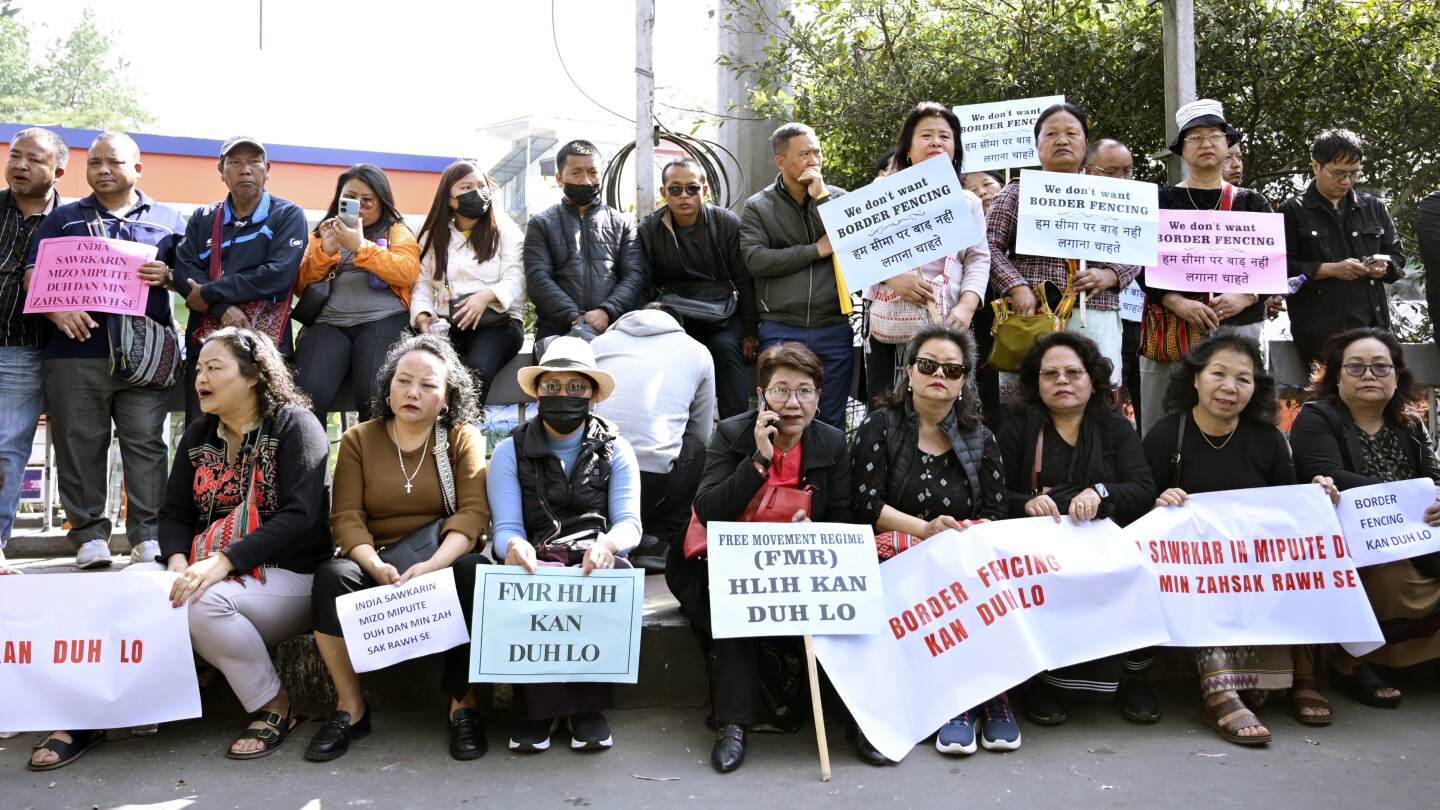GUWAHATI, India (AP) — Hundreds of people living in a remote northeastern Indian state bordering strife-torn Myanmar on Wednesday protested the Indian government’s decision to scrap a limited free border movement between the countries.
India and Myanmar until now had allowed people with ethnic links on both sides to travel up to 16 kilometers (10 miles) into each other’s territory without travel documents.
The protesters in Aizawl, the capital of Mizoram state, also rejected New Delhi’s decision to erect a fence along the 1,643-kilometer (1,025-mile) India-Myanmar border.
“We want the free movement regime to continue because we have families on either side of the India-Myanmar border that was demarcated by the British for their convenience,” said Chhuantea, a leader of the Central Young Mizo Association, one of the five civil society organizations that organized the protest.
India is home to thousands of refugees from Myanmar. Indian officials in November estimated that thousands had entered northeastern states to flee heavy fighting in Myanmar’s western Chin state, where Myanmar’s ruling military government has been fighting ethnic rebels.
India’s four northeastern states, Arunachal Pradesh, Nagaland, Manipur and Mizoram, share the border with Myanmar.
India’s Home Ministry announced earlier this month that it would end visa-free movement between India and Myanmar “to ensure the internal security of the country.”
All those who are in Mizoram state as refugees from Myanmar belong to the Kuki-Zo ethnic group, which also includes the Mizos in the northeastern Indian state.
Lalhmachhuana, one of the protest leaders, said the idea to change the free movement regime across the border came following a demand by Manipur state, where bitter ethnic violence since May last year has left at least 150 people dead.
Biren Singh, the top elected official in Manipur, has accused “mercenaries” from Myanmar of stoking the unrest in the state.
India’s remote northeast has long been home to insurgent groups, some demanding independence and others autonomy. The rebel groups have ethnic links to populations inside Myanmar and have often used those ties to seek safety.

